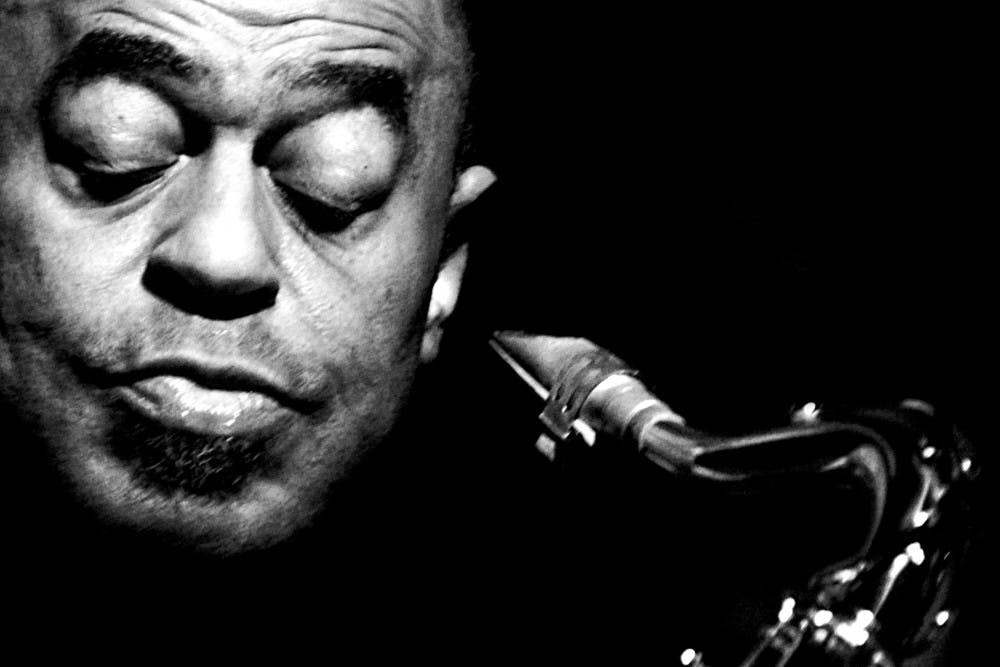Jazz great Archie Shepp arrived at UB in 1969, with very few references for his ethnomusicology course.
The class, “Revolutionary Concepts in African-American Music,” marked the beginning of Shepp’s career in college education. Shepp, known for albums like “Four For Trane” and “Mama Too Tight,” taught a performance course and an ethnomusicology class at UB from 1969-1971.
“Even to give assignments to the students, there just wasn’t everything written like there is today,” Shepp said. “All I had when I started teaching, was my own experience in the music. When I began to build an archive, I could give my students assignments which would build their knowledge not only of contemporary African-American music but how that music evolved.”
During his brief stint at the university, Shepp taught in the Black Studies –– now African American Studies –– program, also acting as a program director. After his time at UB, Shepp went on to teach his ethnomusicology course at the University of Massachusetts Amherst from 1971-2001.
Shepp, previously an educator in the New York City school system, had no university-level experience as an educator prior to UB. He was recruited by then-American Studies department professor and author, Charles Keil.
“Keil’s cousin, trombone player Roswell Rudd, and I were actually in the midst of a rehearsal when Professor Charles Keil called him,” Shepp said. “He asked him if he knew any black person who could head up a department at the University at Buffalo. It was in the middle of my rehearsal for my first recording for Impulse! Records. At the time, I had been teaching in New York City so I found it to be a very good time to accept the position. I did so quite willingly.”
After interviewing with then-President Martin Meyerson, Shepp joined UB during a time when a number of student movements were underway.
Demonstrations in the fall of 1969 were done in support of the Buffalo Nine, a group of students, some with UB ties, who were arrested on the basis of draft evasion. At other times during the semester, students led by then-SA president Bill Austin called on the university to recruit more black and Puerto Rican students to the medical school.
Shepp made sure to consider students’ demands during his tenure and organized an artist-in-residence program at the school. The program brought in the likes of Jackie McLean and Joe Chambers, contemporaries in Shepp’s musical field.
Ed Smith, a former theater professor at UB, shared an office with Shepp during his time with Black Studies. The two, both from Philadelphia, originally met in New York City in 1967 where they talked music and the condition of African-Americans in the U.S..
At UB, Smith showed great respect toward the musician and educator.
In addition to Shepp stopping by Smith’s theatre company in Buffalo, he also visited the former professor’s long-running jazz show on WBFO. Smith believed Shepp took on a role that would later be impactful for the university.
“Archie’s music at the time was very revolutionary and I was learning a lot from him,” Smith said. “I know his music and his classes were almost in that same mood that he was going through.”
Students at the time like Sabu Adeyola, an adjunct instructor in the music department, took both Shepp’s performance and ethnomusicology course at UB.
Adeyola, a former bassist with the Ahmad Jamal Trio and protege of Charles Mingus, remembers the relationship the two built at the school.
Shepp fit the mold of other prominent names in jazz at the time like Ornette Coleman, Albert Ayler and Pharoah Sanders –– jazz musicians who broke barriers and were socially involved. Adeyola recalls Shepp referencing old jazz masters along with modern giants, never taking the genre for granted.
“In his course we read parts of books like ‘Muntu,’ which dealt with neo-African culture and art, so he [relayed] the importance of knowing the African roots of our music,” Adeyola said. “He was similar to what Mingus was about. We understand what we’re about as musicians, but the dignity and the integrity of the music should be first and foremost.”
Between rehearsals at the bassist’s house and classes, Adeyola recalls talking with Shepp about John Coltrane, a jazz legend and collaborator with Shepp.
“Of course, at that time I was in my 20s, a young musician and like most musicians of my era we were very interested in John Coltrane,” Adeyola said. “I knew Archie was close to him and I remember some interesting things he said about John. He said ‘John freed us from being just mere entertainers.’”
Shepp’s recorded works matched his socially relevant persona.
One album, “Attica Blues” –– released in 1972 –– took an avant-garde and post-bop approach to the prior year’s Attica Prison riot.
The riots were spawned by the killing of George Jackson, a black prison rights activist and writer. After inmates’ demands for better conditions at Attica hadn’t been met, they held prison employees hostage.
Four days went by before officers dropped tear gas and exchanged thousands of rounds of bullets. It ultimately led to the deaths of 43 people, including officers, employees and prisoners. It caused an uptick in conversations around prisoners’ rights and racial justice, a conversation Shepp felt he wanted to take part in.
“After I released that record, I went to Attica prison to perform there,” Shepp said. “I met a guy who had a brother who was in one of my classes, in fact, and when he learned that I knew his brother he asked me if I could send him [music papers], because he was making music himself. He was a saxophone player. They had no musical materials there.”
Although he wasn’t able to send music papers to the prison, he found it interesting that a former student's brother– whom he considered to be a good student –– would have his older brother imprisoned in Attica Correctional Facility.
“I was teaching from an area not far from the prison,” Shepp said. “The prison itself had deep symbolic meaning as far as racism and oppression of minorities, particularly oppression in prisons. So I felt I had a responsibility to engage and respond.”
Shepp aspired for more from his students and hoped his presence at the school made a difference. He said he’s been fortunate to have been around so many people at the time who were part of social change as he watched Black Studies departments begin to grow and become important in the ’70s.
“It was a time when I actually began to grow up as a professor,” Shepp said. “I learned an enormous amount even when I didn’t have all the books or professional materials to relate to students or give them the background of music that they needed. I found my lecture course became as important to me as my performance course because it was important to me for students to understand that their music was important.”
Benjamin Blanchet is the senior arts editor and can be reached at benjamin.blanchet@ubspectrum.com.

Benjamin Blanchet is the senior engagement editor for The Spectrum. His words have been seen in The Buffalo News (Gusto) and The Sun newspapers of Western New York. Loves cryptoquip and double-doubles.





